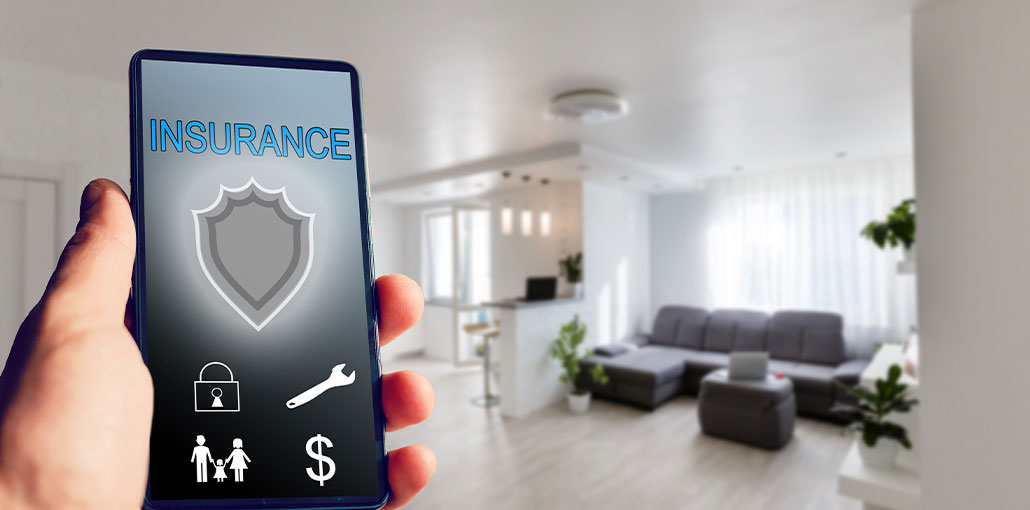In today’s digital age, technology has permeated almost every aspect of our lives, including our homes. From voice-activated assistants to automated security systems, smart home devices are becoming increasingly popular. Not only do these innovations enhance convenience and comfort, but they can also have a positive impact on your homeowner insurance rates. In this blog, we will explore some of the key smart home trends that can potentially lower your insurance premiums while providing added security and peace of mind.
Home Security Systems
One of the most impactful smart home trends that insurers consider favorably is the installation of a robust home security system. Traditional security systems have been around for years, but with the integration of smart technology, they have become more advanced and effective than ever before. Modern smart home security systems often include features like motion sensors, door/window sensors, surveillance cameras, and remote access via smartphone applications.
By investing in a comprehensive smart security system, you can deter potential intruders and minimize the risk of theft or property damage. Insurance companies recognize the added layer of protection these systems offer, and as a result, they may offer discounts on your premiums.
Also read: How to Keep Your Home Security System From Getting Hacked
Smart Smoke and Carbon Monoxide Detectors
Smoke and carbon monoxide detectors are essential safety devices for every home. Traditional detectors serve their purpose by emitting a loud alarm when they sense smoke or dangerous levels of carbon monoxide. However, smart detectors take safety to the next level.
Smart smoke and carbon monoxide detectors are connected to your home’s Wi-Fi network and can send instant notifications to your smartphone or other connected devices in case of an emergency. These smart devices can provide early warning signs even when you are away from home, enabling you to take prompt action and potentially prevent further damage. Additionally, some insurance providers offer discounts for homeowners who have smart smoke and carbon monoxide detectors installed, as these devices mitigate the risk of severe fire damage or health hazards.
Water Leak Detection Systems
Water damage is one of the most common and costly issues homeowners face. Burst pipes, leaking appliances, or faulty plumbing can cause significant damage to your property and belongings. Fortunately, smart home technology has introduced water leak detection systems that can detect and alert you to potential leaks before they escalate into major problems.
Smart water leak detection systems utilize sensors placed strategically in areas prone to leaks, such as under sinks, near water heaters, or basements. These sensors monitor moisture levels and can instantly notify you via smartphone alerts when a leak is detected. By taking swift action, you can mitigate the damage and prevent costly repairs.
Also read: Top 5 Smart Home Technologies
HO3 vs. HO5 Insurance Policies and the Integration of Smart Home Technology
When considering homeowner insurance policies, it’s essential to understand how different types of coverage, such as HO3 vs HO5, interact with smart home technology. Let’s explore the distinctions between HO3 and HO5 policies and examine how smart home technology can enhance the coverage and benefits provided by these policies.
While many people think of needing insurance in terms of natural disasters, there are plenty of scenarios that don’t include something so dramatic as to need insurance. The HO3 policy, commonly known as the “special form” policy, offers broad coverage for your home’s structure and personal belongings against a range of perils. While it may not specifically mention smart home technology, homeowners with HO3 policies can still take advantage of these advancements to enhance their overall protection.
Smart home technology, such as security systems, smoke detectors, and water leak detectors, can complement the coverage provided by an HO3 policy. By integrating smart security systems with features like motion sensors, surveillance cameras, and door/window sensors, homeowners can enhance the security of their property. Insurance companies recognize the value of these systems in deterring potential burglaries or property damage, which may lead to reduced insurance premiums or potential discounts.
The HO5 policy, often referred to as the “comprehensive form” policy, provides coverage that surpasses the HO3 policy in terms of breadth and depth. While the HO5 policy may not explicitly mention smart home technology, it offers a higher level of coverage that can accommodate the integration of these innovative devices.
Smart home technology can play a crucial role in maximizing the benefits of an HO5 policy. Homeowners with HO5 coverage can leverage smart devices to enhance security, prevent damage, and increase efficiency within their homes. For example, smart home devices like water leak detectors, smart thermostats, and energy management systems can contribute to reducing the risk of water damage, optimizing energy usage, and improving overall home maintenance. By detecting leaks early on or efficiently managing energy consumption, homeowners can potentially lower the likelihood of claims and demonstrate responsible homeownership.










Leave a comment